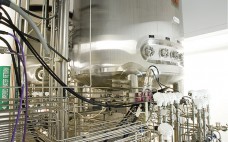Over the past decade, monoclonal antibodies have become mainstream therapeutics for treating a broad range of conditions from autoimmune disorders to cancer. Part of this evolution is increasing time and cost pressure on biopharmaceutical companies to bring new drugs to market 1, 2. Additionally, companies now routinely engineer and screen molecules for developability and manufacturability during discovery before selecting a final candidate molecule. The biosimilar development paradigm also demands significantly more bioanalytical analysis during initial cell-line and process development. Thus,…
Author Archives: Victor Vinci
New Paradigms for Process Validation
Both the United States and the European Union have recently evolved guidance on how to execute process validation (1, 2) with the prospect of a more appropriate life-cycle approach. It goes beyond the traditional three to five lots run at the center point of proposed ranges for operating parameters. New approaches leverage product design and process development information. They facilitate adapting the quality by design (QbD) paradigm to allow for a science- and risk-based selection of critical process…
QbD for Biologics: Learning from the Product Development and Realization (A-MAb) Case Study and the FDA OBP Pilot Program
Cosponsored by CASSS (an international separation society) and the FDA, the 23rd CMC Strategy Forum was held in Bethesda, MD, on 19–20 July 2010. For the third time, this forum explored the topic of quality by design (QbD) for biologics. The first such forum was held in July 2007 and focused on establishing a general understanding of QbD terminology and concepts. In July 2008, the second discussed approaches for submission of QbD data and associated regulatory implications. Building…

